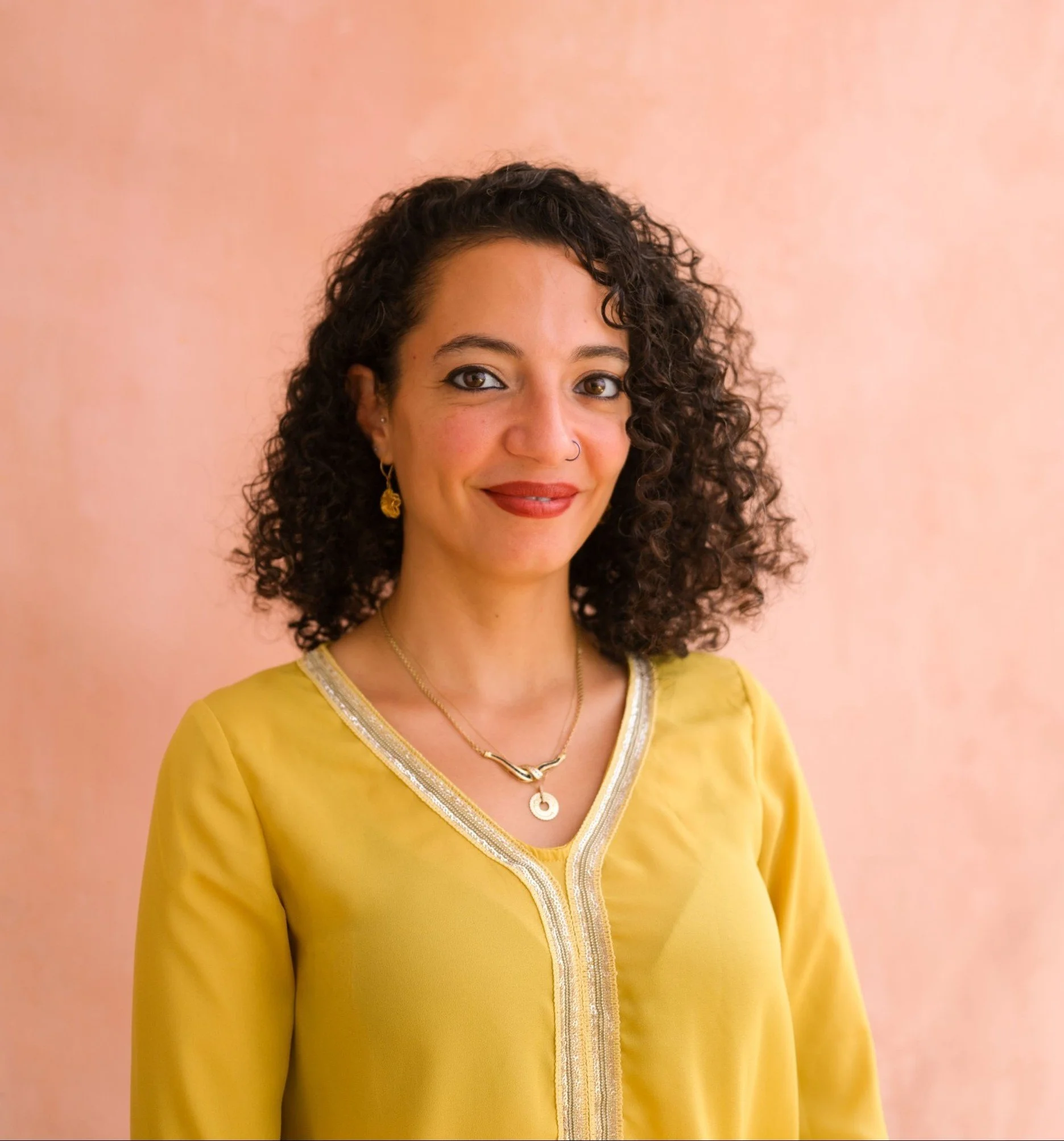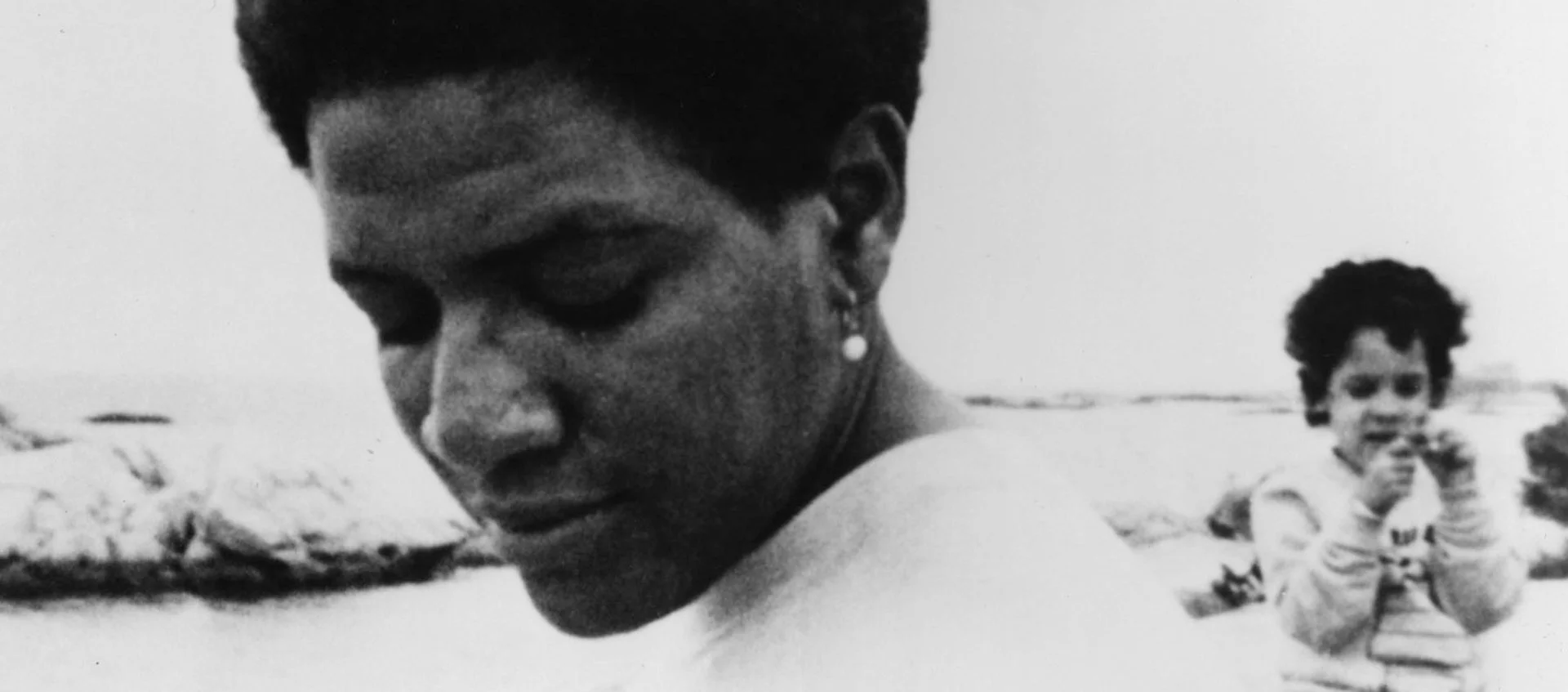BlackStar Film Festival Director Nehad Khader on Storytelling and Imagination’s Role in Liberation
Lauren Abunassar
Philadelphia’s BlackStar Film Festival is set to kick off on August 1st. Opening day programming features films that hail from Brazil, Manila, the American Midwest, Pakistan, and more. And though this year’s offerings are as emblematically diverse and probing as ever, if you ask festival director Nehad Khader what makes the right kind of BlackStar film, her answer is an evocative commentary on both film and artmaking in a time of sociopolitical upheaval: “We like to look for films that break something,” Khader told Al-Bustan. “Maybe they’re breaking form or breaking genre. Or doing something really unexpected… But think of those films that make you ask questions. That challenge you to think outside of what you already believe.”
Nehad Khader, above, a Palestinian-American curator, historian, and editor, is the director of BlackStar Film Festival. She first began volunteering with the festival not long after it was founded.
The historian, curator, and Philadelphia native has been a part of the BlackStar team since the festival’s inception in 2012. Fresh off a stint curating for the DC Palestinian Film & Arts Festival in 2011, she began volunteering with BlackStar because she was drawn to the rich artistic heritage of her Philadelphia hometown. The vibrant film and arts scene in Philadelphia, Khader noted, is often eclipsed by the accomplishments of its massive neighbors: Washington D.C. and New York City. But it’s something she mourns given the city’s rich history of producing powerful artistic voices as equally capable of aesthetic beauty as they are of catalyzing socio-political discourse.
It’s this kind of balance Khader has often looked for in films she has programmed for BlackStar. With a rich history of producing genre-defying films showcasing the voices and stories of Black, Brown, and Indigenous artists, BlackStar is known for its capacity to megaphone work that is as visually striking as it is thoughtful. But what exactly can and should film or art do in the age of multiple unfolding genocides? It’s this question Khader faced when preparing for this year’s festival.
“Liberation is all about imagination and storytelling,” Khader told Al-Bustan. “I think, from my own perspective, I’m thinking a lot about what it is that cinema has to offer [at this time]...And I think, first, it’s a communal experience that people can have together. It’s storytelling, but it’s storytelling we can all experience together and have a space to talk about it together and grow from together.” Part of Khader’s excitement towards BlackStar’s work has been the balance of awareness for both audience and artist. The films she remembers most are those that bridge the distance between the two. “There's this sense [that a film is] teaching me something I didn't know, maybe about the world that I live in, or about a part of the world that I do not interact with a lot. But it's leaving you with something, whether it's a new education or a new feeling.”
A still from Mohamed Jabaly’s 2023 documentary “Life Is Beautiful,” which tells the story of how the director fought for his rights as a Palestinian and a filmmaker when stranded in Norway due to circumstances beyond his control. BlackStar Film Festival is slated to screen it on August 2nd.
On August 4, BlackStar will screen Lina Soualem’s 2023 documentary “Bye Bye Tiberias,” which follows the director and her mother as they return to the Palestinian village in which her mother grew up. Courtesy: BlackStar Film Festival
The capacity of a film to spark both feeling and thought is something Khader can trace back to her earliest cinematic memories. She grew up equally interested in the traditional Egyptian cinema she used to watch with her grandmother and classic blockbuster films like Space Jam (1996). She remembers being struck by images of Egyptian film actress Faten Hamama flickering across the screen as well as images from Hassan El-Imam’s film Khalli Balak Min ZouZou (1972). The sense of magic and wonder was equally corporeal when screening early BlackStar films: Arthur Jafa’s Love is the message, the message is Death (2016), Raafi Rivero’s 72 Hours: A Brooklyn Love Story? (2016), Bryan Green’s The Philadelphia Bicycle Vignette Story (2017), and Lindiwe Matshikiza's One Take Grace (2021). These are films, Khader noted, “I still feel in my body.”
When approaching her curatorial work, Khader is wont to reflect on an upbringing spent gravitating towards the power of human storytelling. “My original training is in literature, and I'm an avid reader so I believe in the power of the written story as well,” Khader said. The work of Toni Cade Bambara, a Philadelphia-based internationalist, activist, filmmaker, and writer, felt deeply influential to both Khader’s own work and BlackStar’s efforts to stimulate cross-cultural storytelling. Palestinian writer Ghassan Kanafani is another artist whose work has shaped Khader’s own practices. “He's somebody who didn’t write to a Western audience,” Khader said. “He wrote to his own audience but shows us how you know you can write to your own audience and still remain so vital and important as a storyteller for so many, and for years into the future.” This is a capacity Khader has looked for in BlackStar films.
On August 4th, BlackStar is slated to screen Ada Gay Griffin’s acclaimed documentary focusing on the life and work of Audre Lorde, “Litany for Survival” (1995).
And indeed, some of the upcoming BlackStar films that Khader said she is most excited about pulse with the vibrancy of history, politics, loss, grief, and humor. There is the retrospective screening of A Litany for Survival (1995), the documentary portrait of Civil Rights activist, poet, philosopher and scholar Audre Lorde. There is Miko Revereza’s Nowhere Near (2023), a documentary described by BlackStar as “a poetic memoir through the lens of a stateless person returning to an estranged homeland.” There is Damien Hauser’s After the Long Rains (2023), a feature film about a ten-year-old Kenyan girl who yearns to learn to sail a fishing boat so that she can sail to Europe.
And then there is the U.S. premiere of Life is Beautiful (2023), by Khader’s friend Mohamed Jabaly. The film explores the Palestinian filmmaker’s journey on an exchange program in Norway in 2014 when the borders of his home in Gaza were closed down. For Khader, films like these are a chance to offer a more longitudinal glimpse of the experiences of displaced people. “[Displacement] is not just a moment,” Khader told Al-Bustan.
Khader’s family is originally from Palestine, with her father’s family from the village of Umm al-Zinat, and her maternal grandmother from Haifa. Today, she said she mourns for the suffering of Palestine, Sudan, the Congo. But there is also the invitation to perhaps consider storytelling as all the more urgent. “Right now, everybody asks me ‘What do you do in these moments? How do you keep going?’ And it’s not really a choice. We kind of have to. We have to believe so whole-heartedly that we’re going to be free,” Khader said. “And then we have to think about the day after. Because liberation isn't a moment, right? It's not a process. It's many ongoing, long lasting processes.”
Filmmaking— as evidenced by many of this year’s BlackStar films— can function as an intervention. A warning. An archive. And a mode of survival. “Our survival is contingent on our imaginations,” Khader said. “Our survival is contingent on remembering the imaginations of our ancestors and how if they hadn't imagined a better future, or if they hadn't imagined a future for us, better but just a future for us, we wouldn't exist.”
***
Lauren Abunassar is a Palestinian-American writer and journalist. A Media Fellow at Al-Bustan, she holds an MFA from the Iowa Writers’ Workshop and an MA in journalism from NYU. Her first book Coriolis was published by University of Arkansas Press as winner of the 2023 Etel Adnan Poetry Prize.




